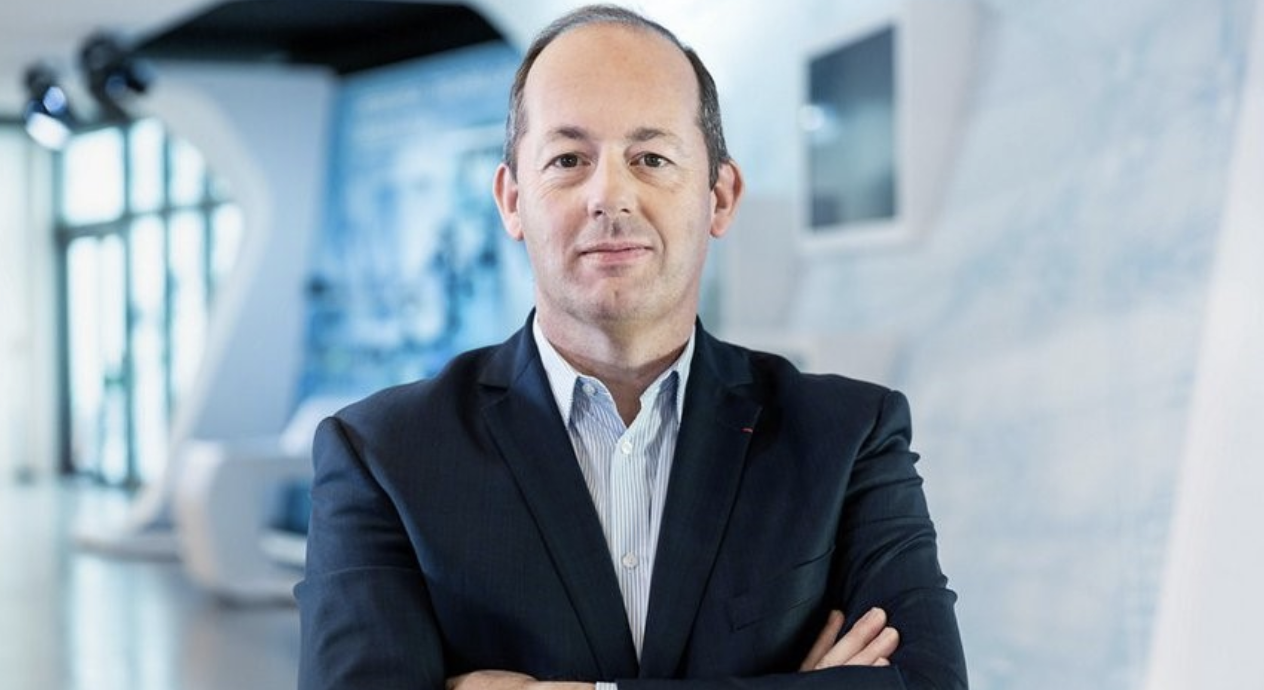Nicolas Chamussy, CEO KNDS France
In his meeting with the Paris-based press on March 12, the CEO of KNDS France, Nicolas Chamussy, provided an overview of how he viewed the way ahead for European defense industry in the new conditions now facing Europe.
That state-backed industrial plant would be on standby, ready to build weapons quickly and in volume in times of conflict, such as the war in Ukraine. That business concept called for investment in new plant that would remain standing for decades – a long-term commitment.
Increased production was particularly important for artillery shells and the explosive material from specialist producer Eurenco, which has expanded its plant in Bergerac, southern France.
KNDS France has raised production of its Caesar artillery and 155mm 52 caliber shells, which have been sent by Paris and Western allies to help arm Ukraine.
A perceived need for rearming of Europe stemmed from the Russian invasion of Ukraine February 2022, with urgency increased by the Trump administration’s signalling of disdain for those fellow Nato members and the Ukrainian president, Volodymyr Zelenskiy.
The European Union had made an early pledge to send one million cannon shells to help hard pressed Ukraine after Russian leader Vladimir Putin ordered the invasion three years ago. The E.U. nations failed by a wide margin to meet that resupply target by March 2023, pointing up a lack of national stock and output of new ammunition.
The Ukrainian forces received 10 different types of 155 mm artillery from European allies, presenting “serious logistical difficulties” for the Ukrainian forces, a report commissioned by the E.U. Commission said September 2024. So many types of cannons showed a fragmented European arms industry, “limiting its scale and hindering operational effectiveness in the field,” the report said. There were even different variants of some of those types of guns.
The Ukrainian army fields artillery firing the Soviet-standard 152 mm shell, and Kyiv has launched production of 155 mm shells and artillery, to meet Nato specifications.
Mario Draghi drafted that report for the E.U., The Future of European Competitiveness. Draghi is a former Italian prime minister and ex-president of the European Central Bank.
Concern over Washington could be seen with March 13 and 14 media reports of Portugal looking at European fighters instead of the F-35 to replace its F-16 fleet, and Canada reconsidering its order for the F-35. The latter reflected anger over President Donald Trump referring to Canada as the 51st state of the U.S., and slapping tariffs on Canadian goods.
With more uncertainty in the world, there was need for European partners to create certainty, a foreign policy advisor at the Elysée office said March 14. That meant having more agency, and building on assets of European autonomy. France was preparing for the next meeting of the European Policy Community, to be held May 16.
Elysée Meeting
Chamussy was one of the chief executives of the seven largest French arms companies attending a March 14 meeting called by president Emmanuel Macron, at the Elysée office. The companies were Airbus, Dassault Aviation, KNDS France, MBDA, Naval Group, Safran, and Thales. Some 4,000 small and medium companies were represented at the meeting, part of Macron’s pursuit of a faster, more productive sector in what he has called a war economy.
That meeting would explore developing capabilities in artificial intelligence, space, drones, quantum computing, and submarine threats, RMC radio reported.
A key topic would also be the government’s pressure on contractors to pay effectively royalties on export sales, with foreign sales of the Rafale fighter jet in the sights of the administration, financial website La Tribune reported. The three leading contractors, Dassault, Safran, and Thales, were in dispute with the authorities over €153 million ($167 million) to be paid on exports of the Rafale.
Chamussy has worked at senior levels at Airbus, was an advisor in the office of a previous defense minister, and he worked in the U.S. air force laboratory at Kirtland air base, Alburquerque, NM in the early 1990s. He is chair of Gicat, a trade association for the land weapons industry.

